Marcel Kittel reveals the power numbers and effort behind his most successful Tour de France years
The retired German sprinted has allowed his data to be studied to offer an insight into the demands of the Tour de France
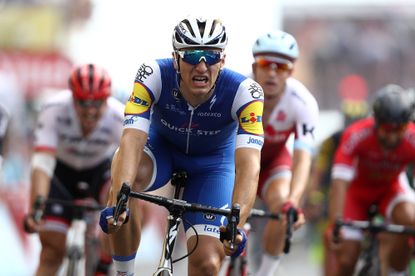

Marcel Kittel has revealed some of the staggering power numbers behind his most successful Tour de France years in a new study.
The German sprinting star, who retired from professional cycling in 2019, has made his power data and other details available to researchers who have analysed his effort in four editions of the Tour de France.
A new research paper, titled ‘Demands of the Tour de France: A Case Study of a World-Class Sprinter (Part 1)', delves into the physical toll the Tour takes on a sprinter like Kittel and how the rider paced his efforts on different types of stage.
Kittel, posting on social media about the paper, said: “After I retired I was approached by Teun van Erp and he asked me if I would be interested to be part of a study to look into the demands of a Tour de France for a sprinter.
“Together with Rob Lamberts, he analysed my power data and sprints from 2013, 2014, 2016 and 2017. This week the study was published and I wanted to share my insights with you.”
The paper, written by Kittel, Teun van Erp and Robert Lamberts and published in the International Journal of Sports Physiology and Performance, covers the 2013, 2014, 2016 and 2017 Tours de France, in which Kittel won 14 stages in total.
Kittel weighed between 90kg and his lightest race weight 88.5kg (in the 2016 Tour), which the researchers used to calculate his Tour de France Functional Threshold Power (FTP) in watts per kilogram for each of the races.
Get The Leadout Newsletter
The latest race content, interviews, features, reviews and expert buying guides, direct to your inbox!
His highest FTP was in the 2016 and 2017 Tours, in which Kittel pushed 431 watts (4.9w/kg) and 438w (4.9w/kg) respectively.
The paper says that Kittel had a relatively low FTP in w/kg compared to other riders, but it was due to his enormous maximum power outputs that he was still able to succeed.
Kittel revealed that his highest ever power was 1,940w for three seconds during a training ride, but that his max power was slightly lower at the end of a race.
He also said that he needed to maintain that his weight in order to perform, saying: “My strength was my sprint and I needed the muscles (and weight) for it.
“If I would have lost five kilograms I would have still been one of the heaviest in the peloton, but maybe not the fastest anymore.”
The researchers said: “The sprinter, although highly successful in the sprint stages, finished in the last five per cent of the general classification. This position highlights the difficulty posed by the TdF for a world-class sprinter. To a certain extent, the low overall GC position could be attributed to tactics and taking it easy on certain stages as the overall GC position is not that important.”
“Although this world-class sprinter has a lower relative FTP than previously reported in professional road cycling, he was still highly successful, with 14 stage wins. His success lies in his unique capacity to produce extremely high explosive power outputs. To our knowledge, these are the highest values ever reported for a sprinter in a road race and, as such, are similar to power outputs reported in track cycling.”
The research also compared data from each of the four Tour de France editions, revealing the average stage length was between 159km (in 2013) and 176km (in 2017).
Kittel’s average power for each stage ranged between 256w (2.88w/kg) in 2017 and 264 (3.02w/kg) in 2016.
In the conclusion, the researchers said: “Due to a lower relative FTP when compared with professional cyclists who specialise in other race types, finishing a Grand Tour is extremely strenuous for a world-class sprinter. A sprinter’s average daily load is around 10 per cent higher, and he will spend five per cent to 10 per cent more time in the high-intensity zones compared with a GC contender in a GT. The mountain stages pose higher demands when compared with the other mass-start race types. In addition, mountain passes situated in the beginning are executed with a high intensity to avoid the risk of becoming isolated.”
Part two of the study will look specifically at the sprints and the tactics in the final of a Tour de France stage.

Thank you for reading 20 articles this month* Join now for unlimited access
Enjoy your first month for just £1 / $1 / €1
*Read 5 free articles per month without a subscription

Join now for unlimited access
Try first month for just £1 / $1 / €1
Alex Ballinger is editor of BikeBiz magazine, the leading publication for the UK cycle industry, and is the former digital news editor for CyclingWeekly.com. After gaining experience in local newsrooms, national newspapers and in digital journalism, Alex found his calling in cycling, first as a reporter, then as news editor responsible for Cycling Weekly's online news output, and now as the editor of BikeBiz. Since pro cycling first captured his heart during the 2010 Tour de France (specifically the Contador-Schleck battle) Alex covered three Tours de France, multiple editions of the Tour of Britain, and the World Championships, while both writing and video presenting for Cycling Weekly. He also specialises in fitness writing, often throwing himself into the deep end to help readers improve their own power numbers. Away from the desk, Alex can be found racing time trials, riding BMX and mountain bikes, or exploring off-road on his gravel bike. He’s also an avid gamer, and can usually be found buried in an eclectic selection of books.
-
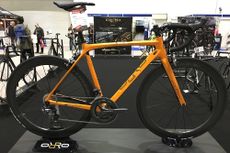 Heavy discounting cited in cycling company's collapse
Heavy discounting cited in cycling company's collapseDistributor i-ride, which owns bike brand Orro, held a 'huge overstocking clearance' this year
By Tom Davidson Published
-
 Release your fitness potential with Zwift
Release your fitness potential with ZwiftLooking to get fit this winter? Look no further than Zwift’s immersive indoor training platform
By Hannah Reynolds Published
-
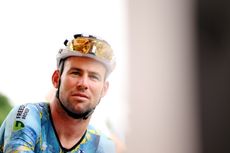 Marcel Kittel: ‘I believe in Mark Cavendish'
Marcel Kittel: ‘I believe in Mark Cavendish'The 14 time Tour de France stage winner backs Manxman to grab record breaking 35th stage win in the coming days
By Tom Thewlis Published
-
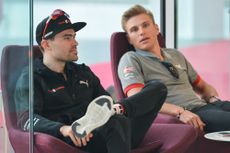 Marcel Kittel: I hope Tom Dumoulin finds the answers he needs
Marcel Kittel: I hope Tom Dumoulin finds the answers he needsThe German sprinter similarly took a break from cycling in May 2019, retiring a few months later
By Jonny Long Published
-
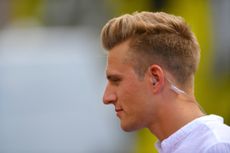 Marcel Kittel: ‘There’s no shame in change’
Marcel Kittel: ‘There’s no shame in change’Sprinting icon Marcel Kittel reveals the reasons behind his retirement – and why cycling needs to open up about the extreme pressures endured by riders
By Chris Marshall-Bell Published
-
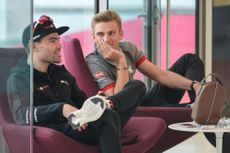 Marcel Kittel says he's not surprised Tom Dumoulin wanted to leave Sunweb
Marcel Kittel says he's not surprised Tom Dumoulin wanted to leave SunwebThe German quit racing in 2019 while Dumoulin transferred to Jumbo-Visma after injury curtailed his season
By Jonny Long Published
-
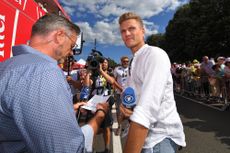 'I don’t know how depressed people feel, but I think I went in that direction' says Marcel Kittel, who also reveals post-cycling plans
'I don’t know how depressed people feel, but I think I went in that direction' says Marcel Kittel, who also reveals post-cycling plansThe German sprinter has opened up about what his future holds
By Jonny Long Published
-
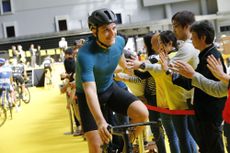 ‘Cycling is beautiful but professional sport is another story’: Marcel Kittel on his decision to retire at 31
‘Cycling is beautiful but professional sport is another story’: Marcel Kittel on his decision to retire at 31Marcel Kittel has shared more of his motivation for retiring from pro racing at 31.
By Alex Ballinger Published
-
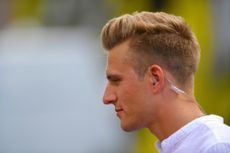 Marcel Kittel announces retirement from cycling
Marcel Kittel announces retirement from cyclingThe German said "[I] didn't want to watch my son grow up via Skype"
By Jonny Long Published
-
 'You miss the big sprinters' : How absence of Cavendish & Kittel has changed the Tour de France sprints
'You miss the big sprinters' : How absence of Cavendish & Kittel has changed the Tour de France sprintsRiders give their views on how Tour de France sprints change without two of the race's best ever sprinters
By Gregor Brown Published